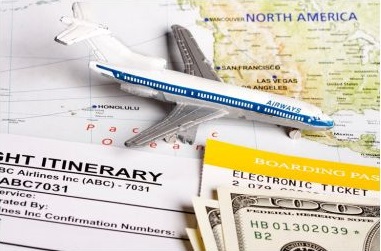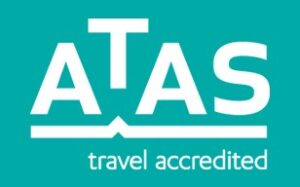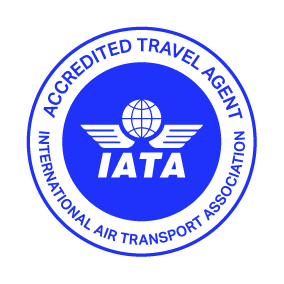Corporate travel is an essential part of many Australian businesses. From attending international conferences to meeting key clients or exploring new business opportunities, travel is often necessary.
However, the risks associated with business travel are significant, and managing these risks effectively is critical for ensuring the safety and security of employees. In this blog, we’ll delve into the importance of business travel risk management for Australian businesses and offer practical tips on how to safeguard employees while on the move.
Understanding Business Travel Risk Management for Australian Companies
Business travel risk management for Australian companies involves identifying, assessing, and mitigating the potential risks employees face while travelling for work. This can include health and safety risks, security threats, natural disasters, and even political unrest in foreign countries. With travel becoming more complex and unpredictable, Australian businesses need to implement a strong system and processes to protect their staff and assets.
Australia’s geographic location, combined with the increasing frequency of international travel, makes business travel risk management for Australians particularly important. While travelling abroad, employees can face various challenges, including language barriers, unfamiliar legal systems, and potential threats to their personal safety. The global nature of business today also means that employees often travel to high-risk areas, which may require specialised attention to ensure safety.
Key Elements of Business Travel Risk Management
1. Risk Assessment & Planning
The first step in risk management business travel for Australian companies is to carry out a thorough risk assessment. Businesses should evaluate destinations based on various factors, including political stability, health risks, and the quality of local infrastructure. This involves researching factors like the prevalence of infectious diseases, local crime rates, and the availability of medical facilities.
For example, if an Australian company sends employees to a region affected by political instability or natural disasters, additional precautions must be taken. This may include arranging secure transport, ensuring the availability of emergency evacuation services, or choosing accommodations in safer areas.
2. Travel Insurance
Travel insurance is a must for businesses that require employees to travel, providing coverage in case of illness, injury, trip cancellations, or delays. While travel insurance is often seen as an additional expense, it is an essential component of business travel risk management for Australian corporations.
Employees should be covered by a policy that includes medical expenses, emergency evacuation, and loss of baggage or essential documents. For high-risk destinations, a specialised insurance policy may be required.
3. Employee Training & Awareness
One of the most effective ways to manage business travel risks is through proper employee training. This training should focus on raising awareness of potential risks and providing strategies to minimise them. Employees should know how to access emergency services, avoid unsafe areas, and manage health risks while abroad.
For example, employees travelling to destinations with high levels of infectious diseases (such as malaria or dengue fever) should be advised on vaccinations, preventive medications, and personal protective measures, like insect repellents and bed nets.
4. Emergency Response Plans
A well-established emergency response plan is vital for managing business travel risks. This should include a communication plan to track employees while they’re on the move. Modern corporate travel solutions, such as travel management software, allow businesses to track employees’ locations and ensure they’re safe at all times.
In the event of an emergency, businesses must have a crisis management process in place for quickly contacting the employee, offering assistance, and arranging for evacuation if necessary.

5. Duty of Care
Duty of care refers to an employer’s legal and moral obligation to ensure their employee’s safety and wellbeing while they are travelling for work. For Australian businesses, this includes providing employees with safe accommodations, transport, and emergency support, as well as ensuring their overall safety during the trip.
Employers should also consider providing employees with local contact information, such as the Australian Embassy or Consulate in the destination country, and relevant contacts for medical emergencies.
Risk Mitigation Strategies for Australian Business Travellers
1. Corporate Travel Solutions
Australian businesses can benefit from corporate travel solutions that streamline the process and help manage risks. Working with a travel management company (TMC) like Spencer Corporate Travel allows businesses to access expert advice, personalised support, and 24/7 assistance. TMCs can help with everything from booking flights and accommodations to ensuring employees are protected throughout their trips.

2. Event Travel Management
For businesses that frequently host or attend functions, event travel management is a critical component of risk management business travel for Australians. Spencer Corporate Travel’s event travel management services, for example, offer tailored solutions to ensure attendees are safe, secure, and have a seamless travel experience.
3. Security Briefings and Tracking
Before sending employees on business trips, especially to high-risk areas, security briefings are essential. These briefings should cover potential risks, emergency procedures, and contact information for local authorities. Reliable travel management companies provide businesses with tracking capabilities, ensuring employees’ whereabouts are known and they can be reached in case of an emergency.
4. Business Leisure Trip Integration
For businesses that combine work with leisure, it’s important to extend risk management practices to personal trips as well. Offering a business leisure trip (bleisure) program that includes safety measures for personal time abroad ensures employees are covered during their entire stay.
Ensure Safety for Your Employees Wherever They Go
Business travel risk management for Australian companies is essential to ensuring the safety and wellbeing of employees while they are on the move. By assessing risks, offering training, and partnering with travel management companies like Spencer Corporate Travel, businesses can protect their staff and ensure their travel experiences are productive and safe.




